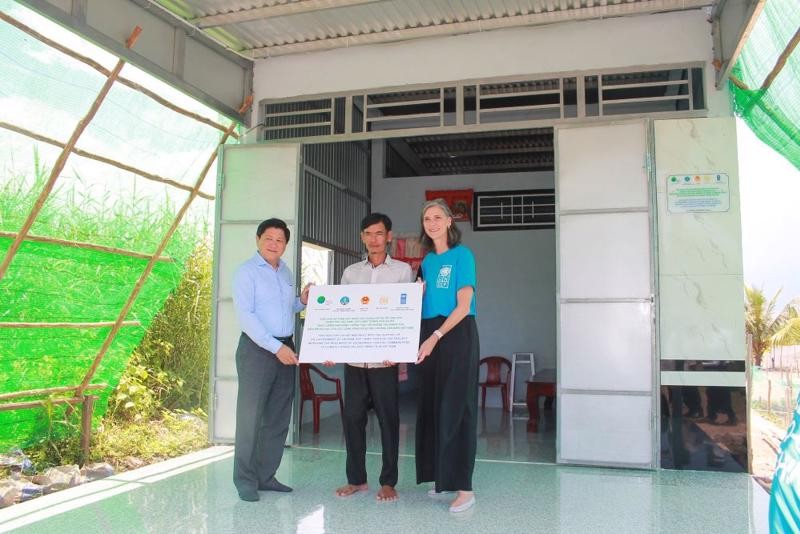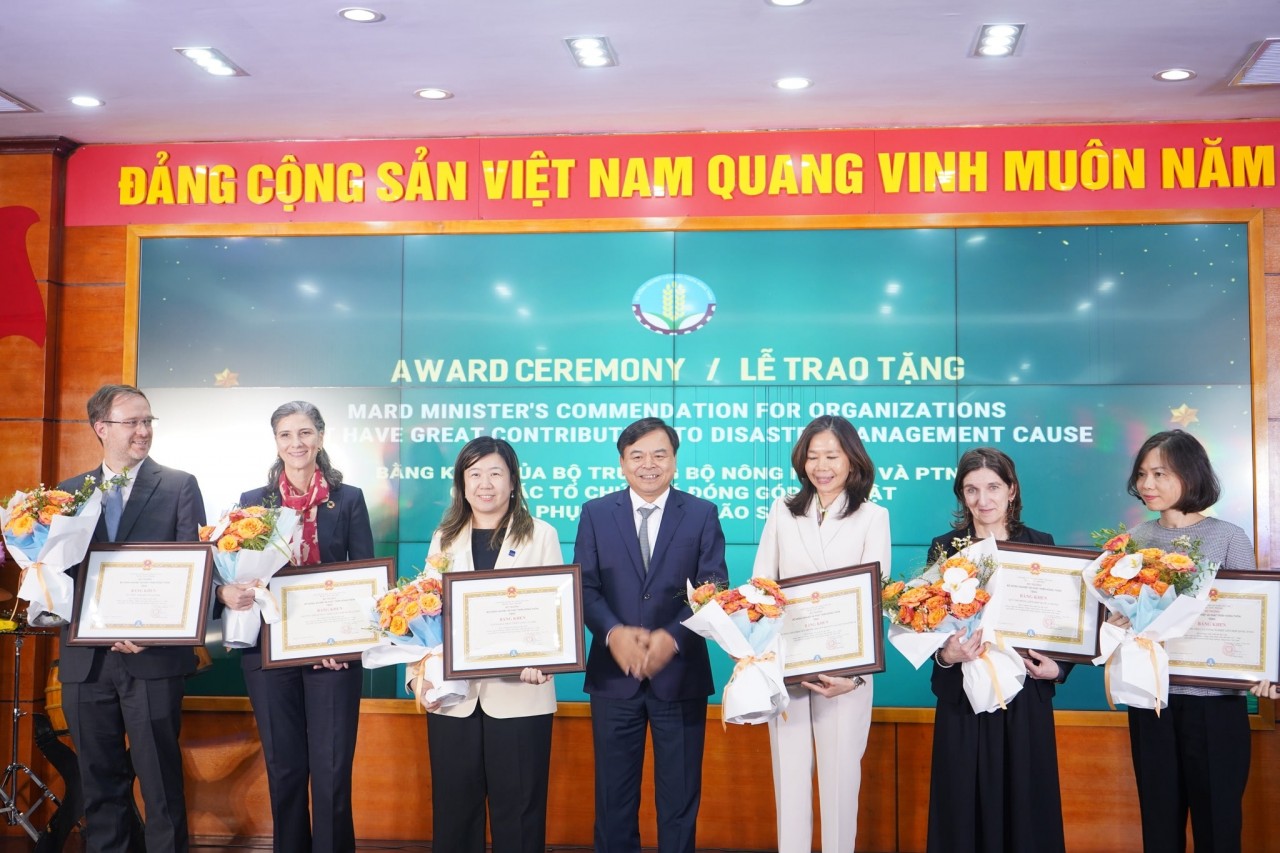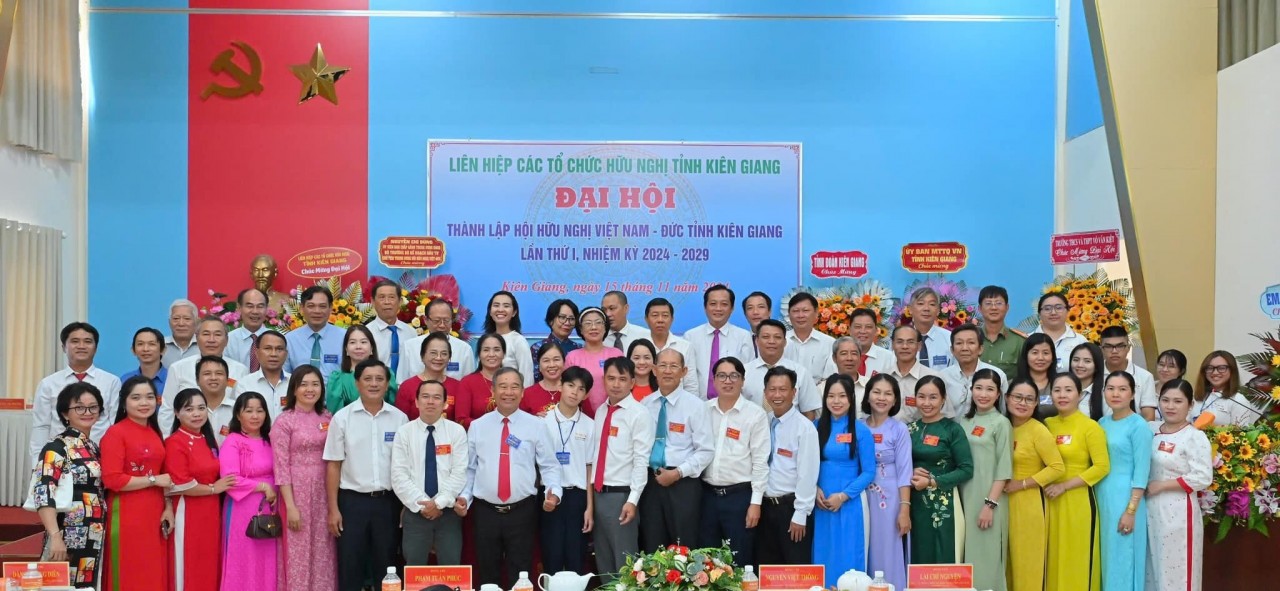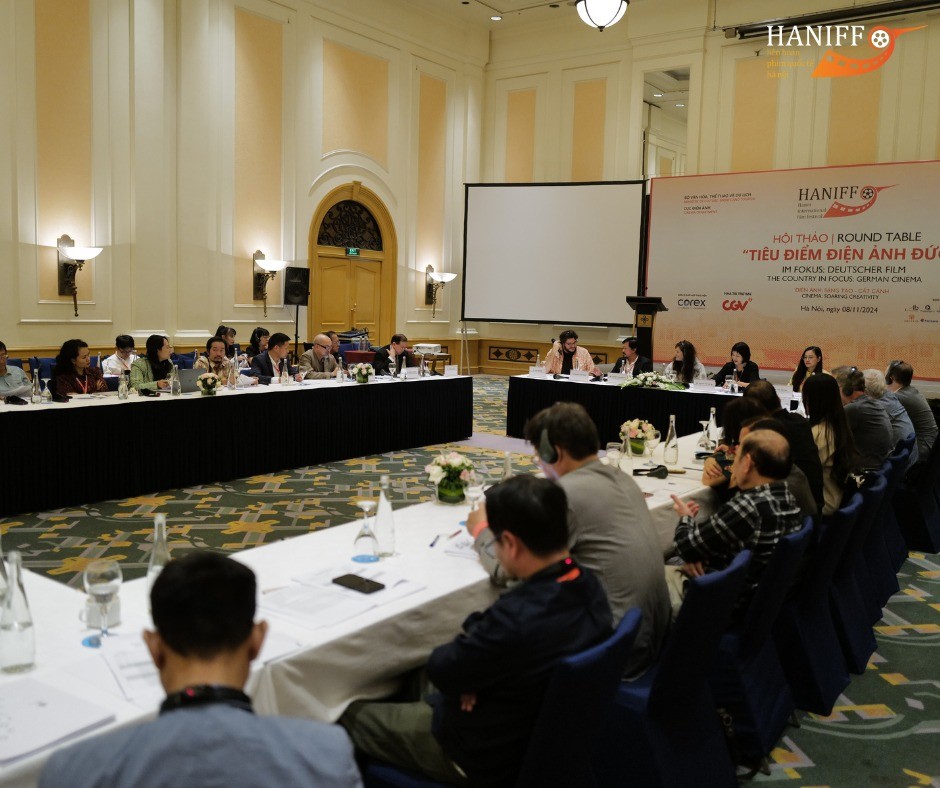MARD, GIZ Join Hands for Innovations in Agriculture of Vietnam's Mekong Delta
The Ministry of Agriculture and Rural Development of Vietnam (MARD) in collaboration with the German Agency for International Cooperation (GIZ) in Vietnam on May 20 organized the Conference on Promoting Innovation in the Agriculture and Food sector of the Mekong Delta.
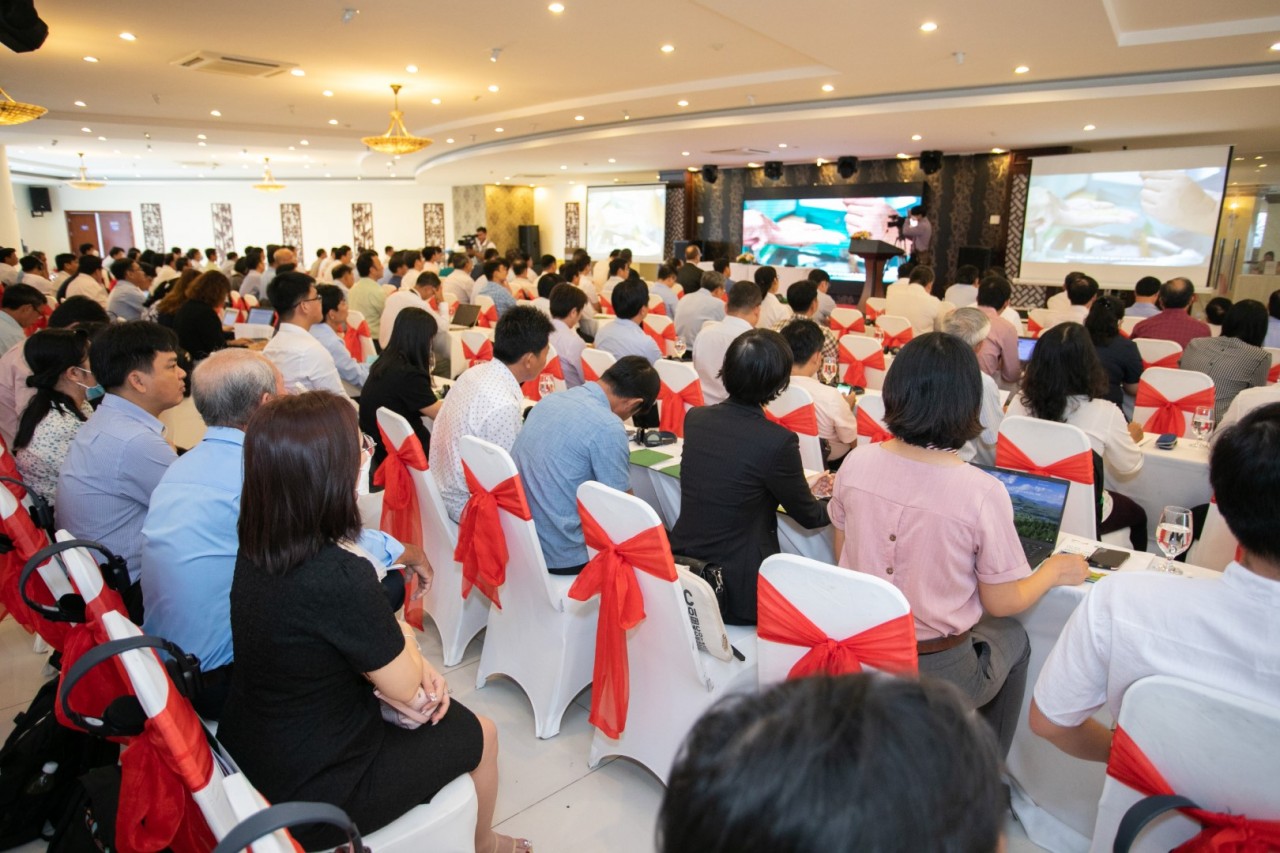 |
| Overview of the conference. Photo: GIZ Vietnam |
The conference aimed at creating a common space for enterprises, cooperatives from the food and agriculture sector, international partners, and the public to identify concrete collaboration opportunities, and to exchange on priorities and objectives for the future of agriculture in the Mekong Delta.
The conference is co-chaired by MARD Vice Minister Tran Thanh Nam; Deputy Country Director of GIZ in Vietnam Oemar Idoe; Vice Chairman of Kien Giang People's Committee Le Quoc Anh and General Director of Department of Economic Cooperation and Rural Development Le Duc Thinh.
This is an important activity of the Green Innovation Centres (GIC Vietnam), a project that supports innovations along the rice and mango value chains.
 |
| Fishing on a flooded field in Vi Thuy district of the Mekong Delta province of Hau Giang. Photo: VNA |
Innovations for change in the Mekong Delta
In March 2022, MARD introduced the pilot project on building areas of agricultural and forestry raw materials for domestic consumption and export in the period 2022 – 2025 which would be implemented in 46 districts and cities of 13 provinces which includes three provinces in the Mekong Delta.
The overall objective of the project is to form key areas to produce raw materials for agricultural and forestry products on a centralized and modern scale.
However, the already intensive agricultural production along with the impacts of climate change is challenging for the Mekong Delta’s agro-food sector.
The Green Innovation Centre for the Agriculture and Food Sector (GIC Vietnam) is jointly implemented by Ministry of Agriculture and Rural Development (MARD) and GIZ, funded by the German Federal Ministry for Economic Cooperation and Development (BMZ).
Solutions promoted by the project in collaboration with public and private partners need to prove their economic viability and the compliance with market-requirements, which ensures larger scale adoption and impacts of innovations promoted by the project.
Since, last year’s kick-off, together with MARD, DARDs in six Mekong Delta cities and provinces of Can Tho, An Giang, Dong Thap, Hau Giang, Kien Giang, and Soc Trang, the GIC Vietnam project has identified key innovations for its selected value chains rice and mango, which include technical and organisational solutions in production, processing, and marketing.
The project follows innovations that correspond to market demand, such as promoting high demand varieties, improved agricultural standards, food safety compliance and quality certification, provision of services for business-oriented smallholder households.
It also supports reducing agriculture’s environmental footprint GHG reduction and rice straw and husk recycling. In the mango value chain, improved orchard and plant health management and reduction of post-harvest quality losses are tackled through the mango business school.
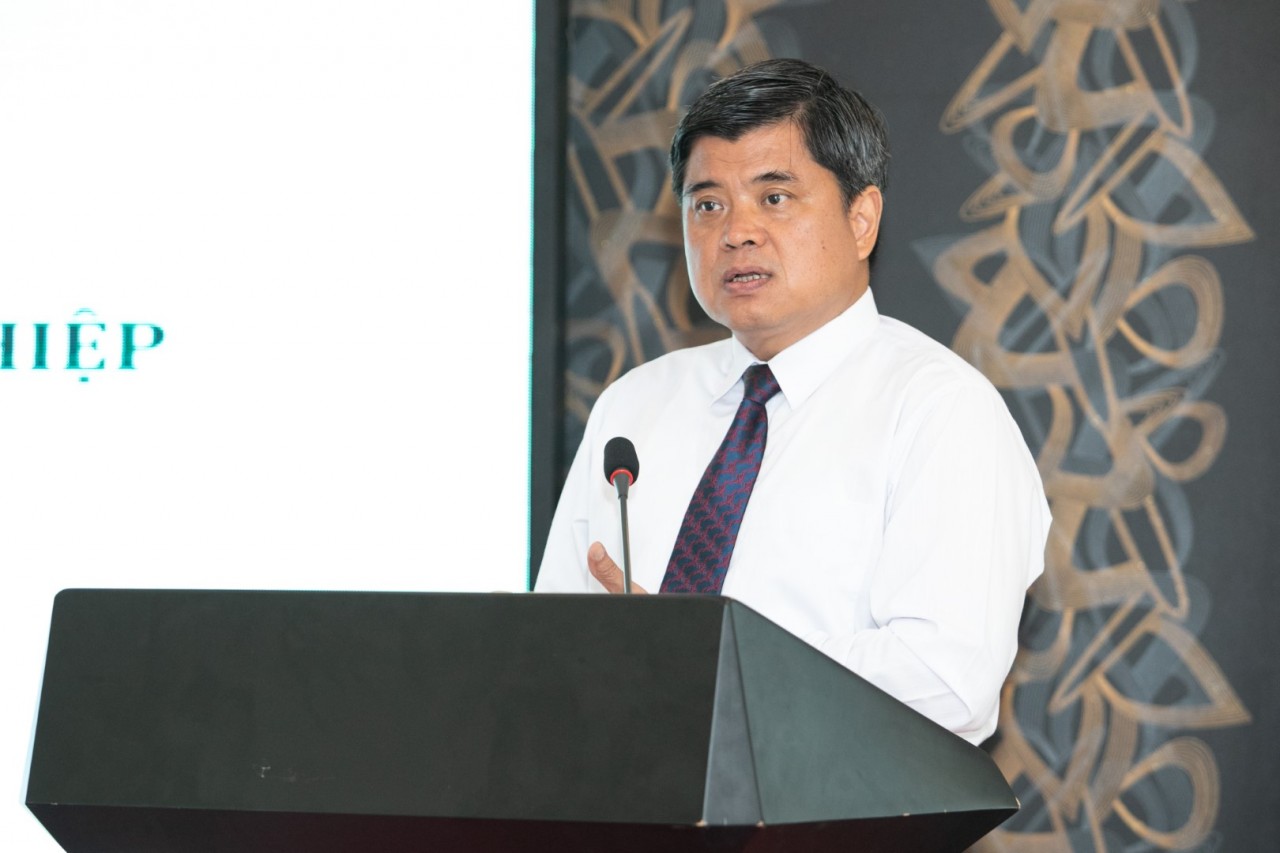 |
| MARD Vice Minister Tran Thanh Nam speaks at the event. Photo: GIZ Vietnam |
MARD Vice Minister Tran Thanh Nam, on behalf of the ministry, appreciates the companionship over the years from the German Cooperation in agriculture development, environment, and climate adaptation in the Mekong Delta.
As part of this support, the GIC Vietnam project has established objectives and interventions consistent with the priorities of the Government of Vietnam and the Ministry of Agriculture and Rural Development. Innovations promoted by the project have initially contributed to the implementation of MARD’s guidelines and policies for the development of the agricultural sector in the Mekong Delta, Nam said.
Engagement of value chain actors in agricultural innovation
The successful adoption of innovations requires strong coordination between all actors along the value chains and innovative, competitive solutions are required, competences need to be developed, and adoption has to be promoted through market-based mechanisms, and with structural political support.
The conference on Promoting Innovation in Agriculture and Food Sector of the Mekong Delta welcomed 180 delegates from the MARD, the Steering Committee for Agriculture and Rural Development in the Mekong Delta, ministries and central offices, food and agriculture organization, NGOs, GIZ, GIC project and consulting agencies, People's Committees of project provinces, project management units, cooperatives, processing and trading enterprises in the rice and mango value chains, organizations and enterprises engaged in agricultural innovation.
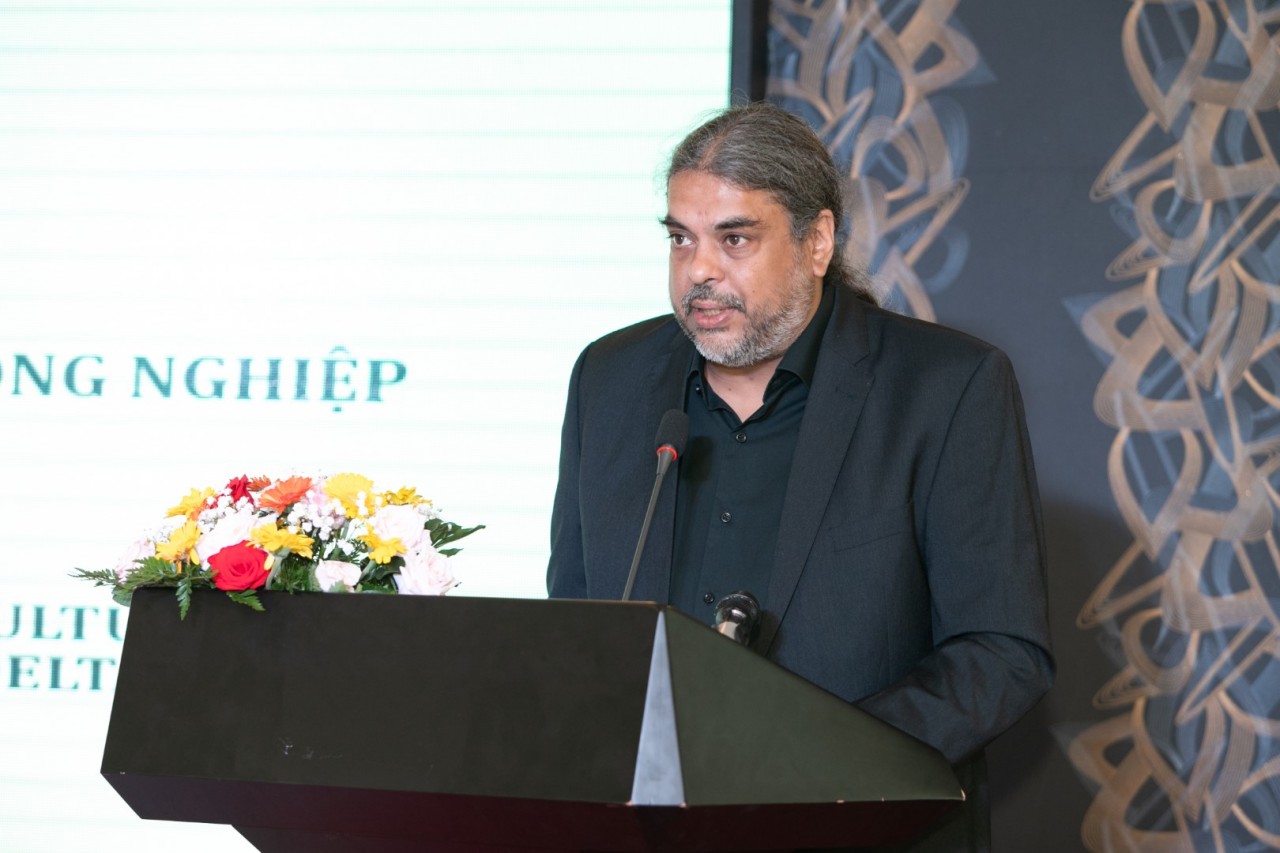 |
| Oemar Idoe, deputy country director of GIZ in Vietnam. Photo: GIZ Vietnam |
“With today’s conference the GIC partners are reaching out to enterprises, the food and agriculture sector, and the public in general to make the approach of agricultural innovations visible, to identify concrete collaboration opportunities, and to exchange on priorities and objectives for the future. In these challenging times, dialogue and coordination and cooperation are imperative, especially when prosperity and food security are at stake on a global scale,” said Oemar Idoe, deputy country director of GIZ in Vietnam.
GIC Vietnam is part of the global program Green Innovation Centres for the Agriculture and Food Sector (GIC), operated by the German Federal Ministry for Economic Cooperation and Development's One World – No Hunger Initiative. The program is implemented by GIZ in 15 countries in Africa and Asia.
In Vietnam, it has been implemented in six central provinces in the Mekong Delta, the core region of Vietnamese rice cultivation. This package is all about enabling smallholder farms, upstream and downstream enterprises in the rice value chain, and a complementary value chain, to leverage innovations that boost income, employment and quality while addressing climate change.
The GIC Vietnam project will be implemented in six provinces from 2020-2024.
By promoting and strengthening the capacity to apply innovative solutions and competitive economic models, the GIC Vietnam Project will support farmers to improve the quality of their products in order to meet the standards. international market quality standards.
The project will help improve farming systems towards sustainability, thereby improving the efficiency of management and use of natural resources while enhancing the country's ability to adapt and withstand the impacts of climate change. The two main agricultural value chains in the Mekong Delta are rice and mango.
In five years of implementation, GIC Vietnam will support 20,000 smallholder farmers to improve the quality of their products, increasing their income by 15-20%. About 12,000 farmers will be trained and applied solutions to minimize negative impacts on the environment.
 | Australia – Vietnam’s Long-term Partner in Mekong Delta: Ambassador Australia has been a long-term partner of Vietnam in the Mekong Delta, affirmed Australian Ambassador Robyn Mudie during a recent interview with the Vietnam News ... |
 | Party Leaders Requests A Development Breakthrough in Mekong Delta Party General Secretary Nguyen Phu Trong on April 22 stressed the strategic importance of the Mekong Delta in national development, and requested concerted efforts to ... |
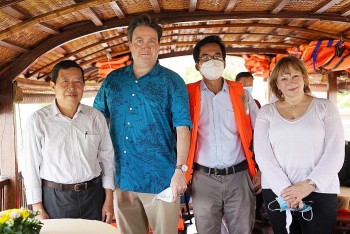 | US Ambassador Visits Can Tho, Mekong Delta Through USAID Vietnam’s projects, the U.S. continues to assist in biodiversity and conservation across Vietnam to help adapt and mitigate impacts from climate change and ... |
Recommended
 Make in Vietnam
Make in Vietnam
Vietnam Considers Regulatory Changes to Import China's Comac C909 Aircraft
 Make in Vietnam
Make in Vietnam
Vietnam Urged to Establish a Legal Framework for Digital Assets and Cryptocurrency
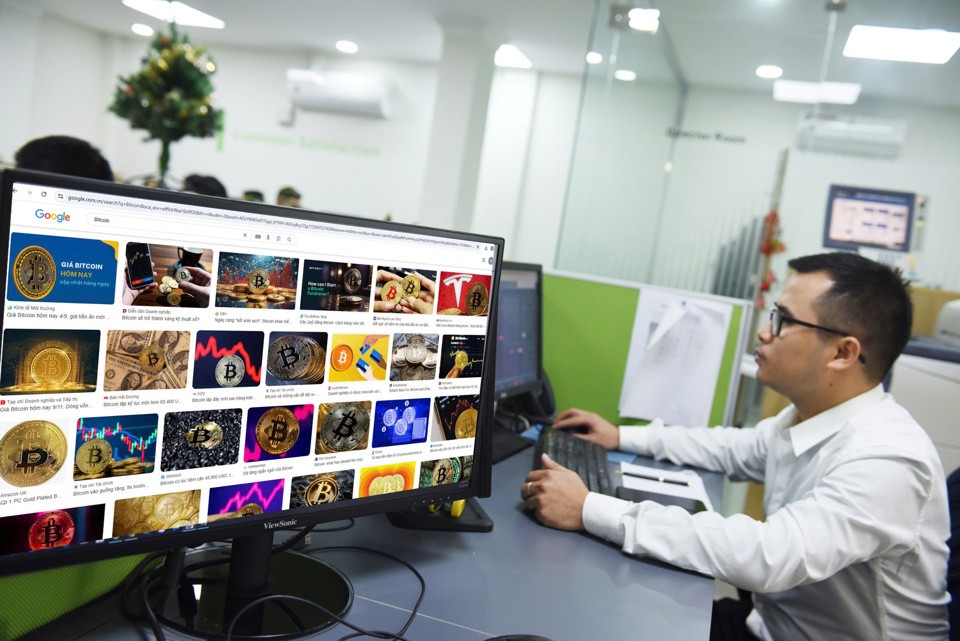 Make in Vietnam
Make in Vietnam
Digital Currency Management in Vietnam from Global Experience
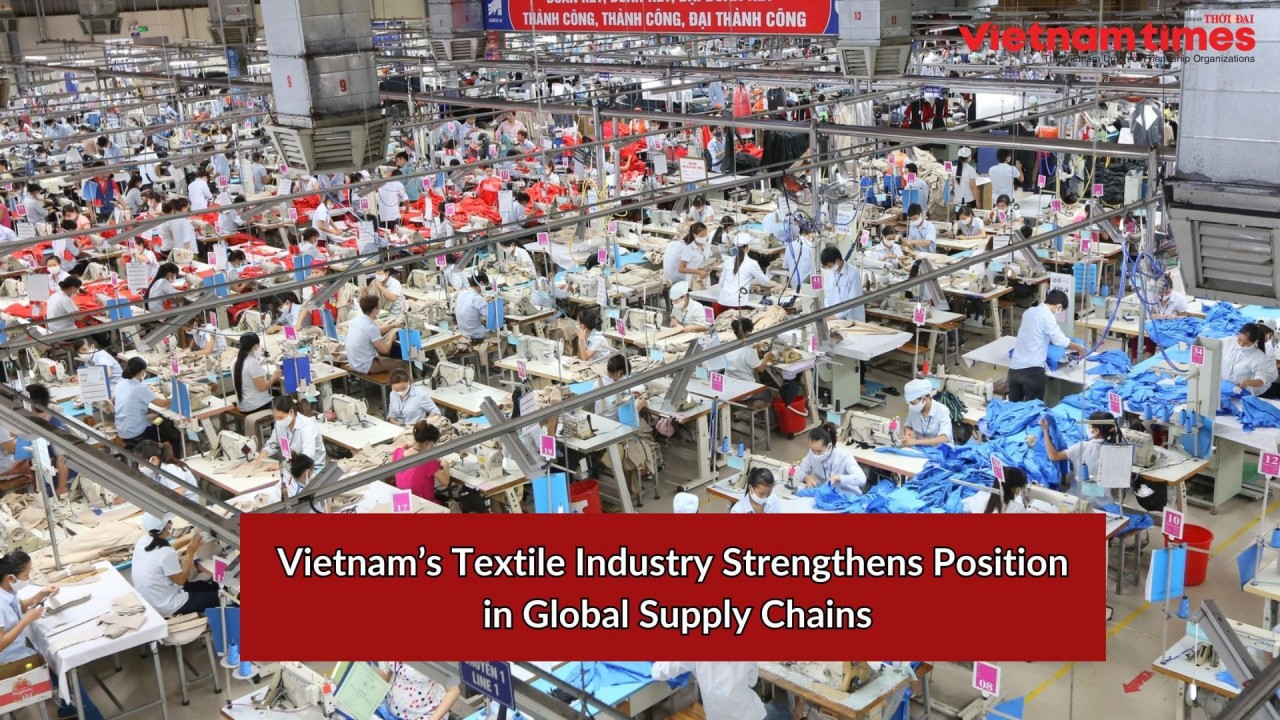 Multimedia
Multimedia
Vietnam’s Textile Industry Strengthens Position in Global Supply Chains
Popular article
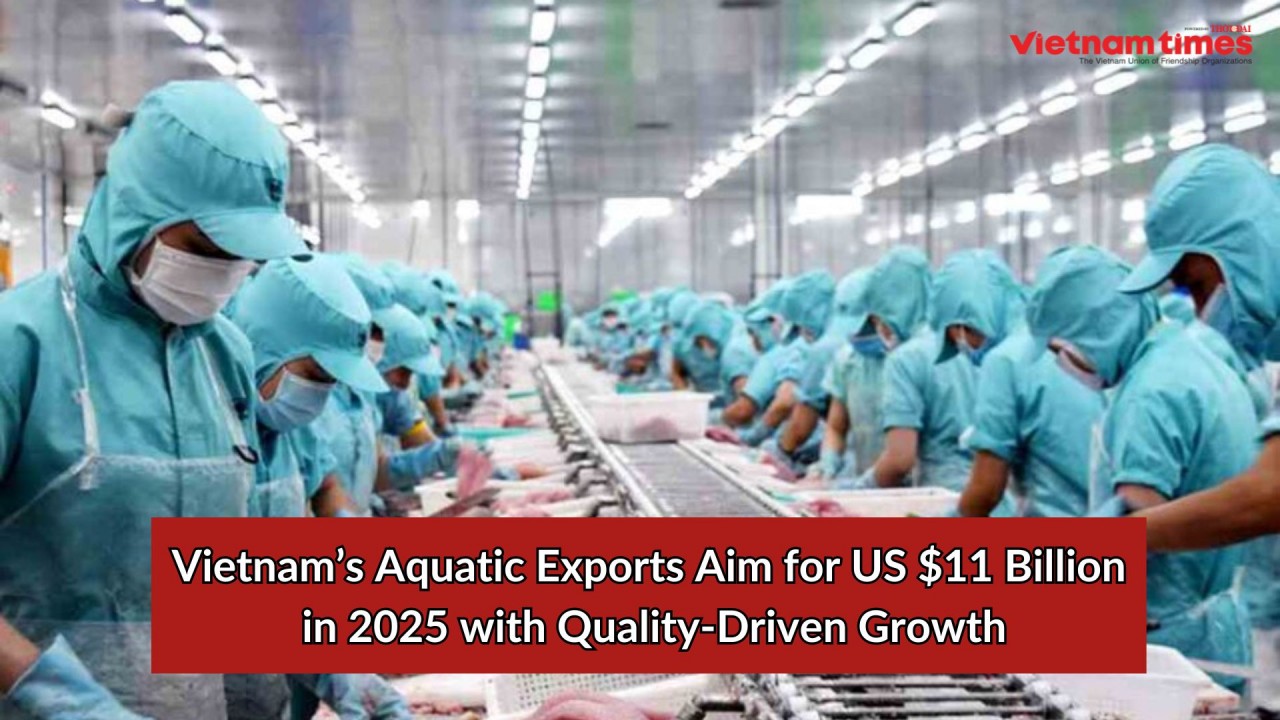 Make in Vietnam
Make in Vietnam
Vietnam’s Aquatic Exports Aim for US $11 Billion in 2025 with Quality-Driven Growth
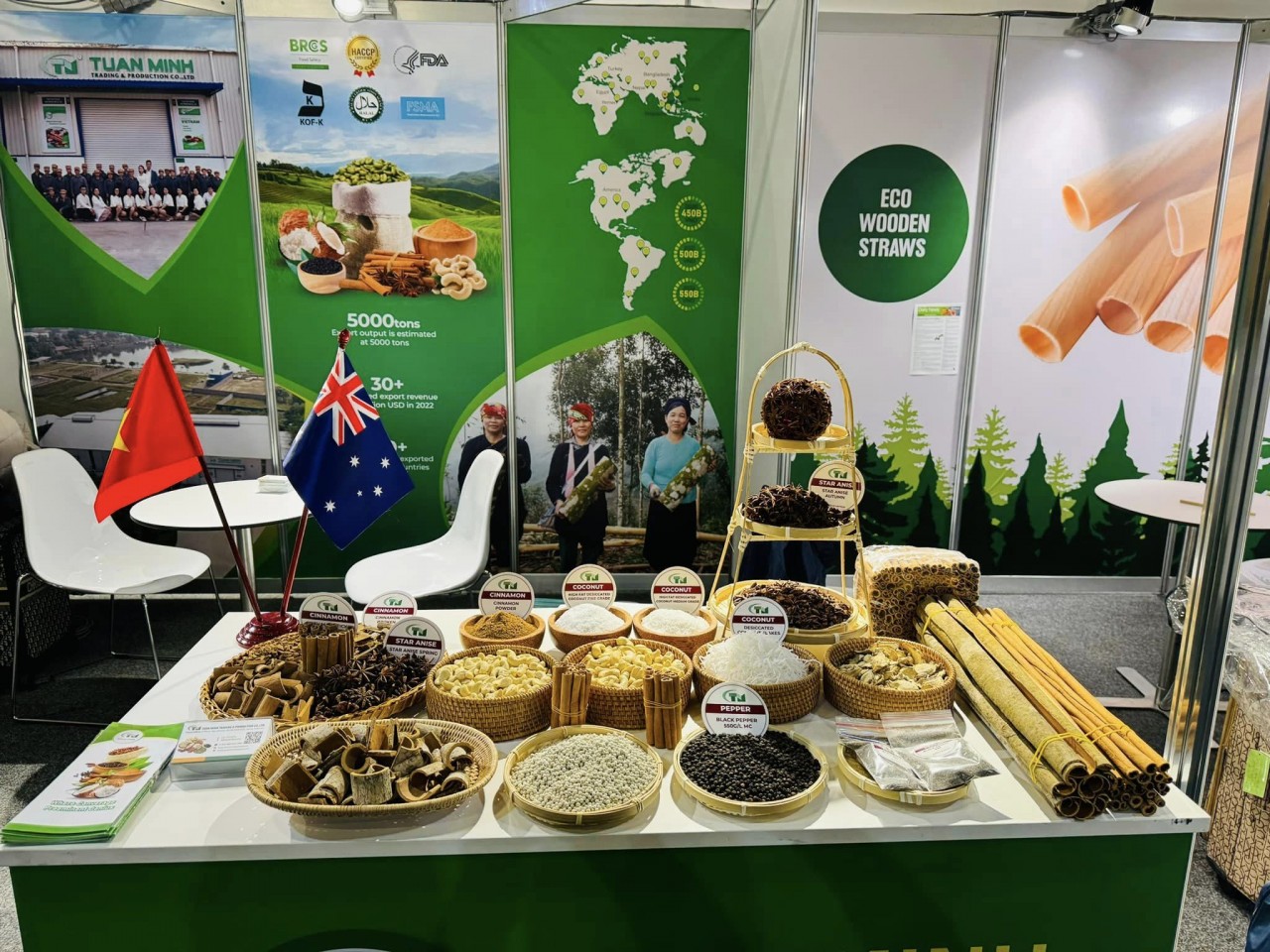 Economy
Economy
Vietnamese Products Steal The Show at 2024 Foodservice Australia
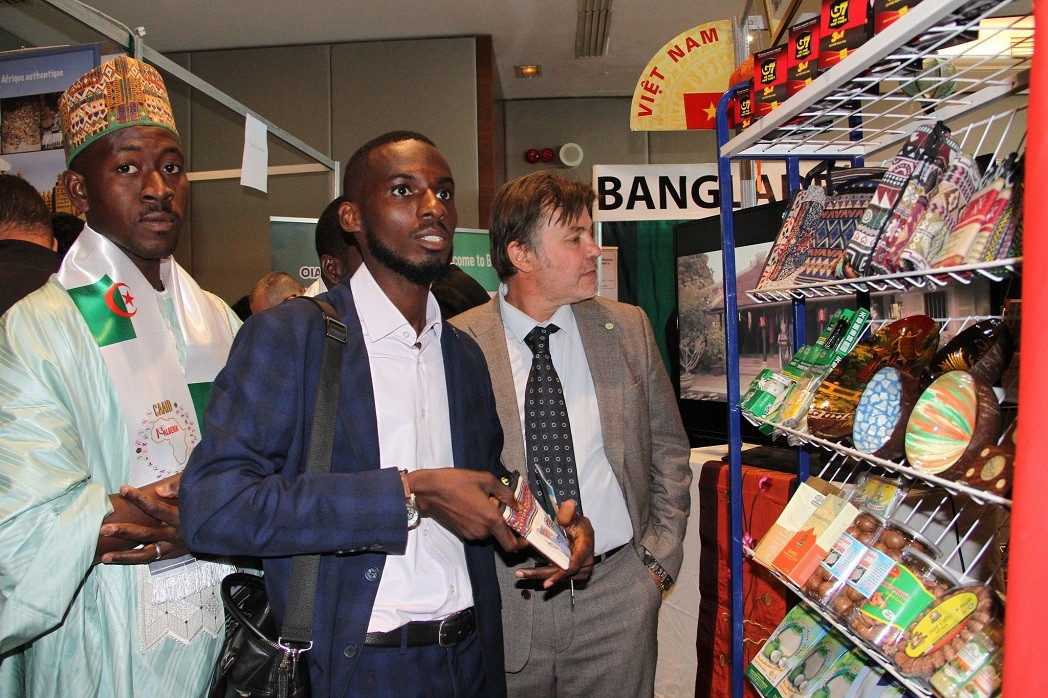 Make in Vietnam
Make in Vietnam
Huge Potentials, Opportunities for Vietnamese Products in African Market
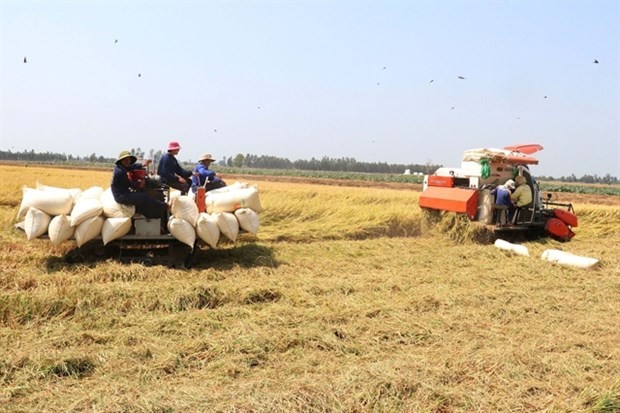 Make in Vietnam
Make in Vietnam




